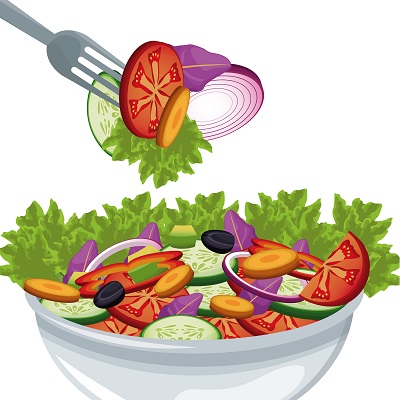 People switch to a meatless diet for different reasons. Some people do it for environmental reasons; others do it for their passion for preserving animal life and for the health perks it provides.
People switch to a meatless diet for different reasons. Some people do it for environmental reasons; others do it for their passion for preserving animal life and for the health perks it provides.
To date, more and more studies are proving the health benefits of a meatless diet and one of these awesome benefits is improved digestion.
How will a Meatless Diet Improve Digestion?
How important is healthy digestion? Well, 70 percent of your immune system starts in the digestive tract; therefore, keeping it healthy is crucial for your overall health.
Eliminating meat from your diet surely will not be easy, but it is something worth considering especially with these digestive perks:
Regular Bowel Movement
Meats are high and fat and protein stays longer in your gut because they take longer to digest. On the other hand, a diet mainly of fruits, vegetables, and whole grains is rich in dietary fiber which promotes better digestion.
Dietary fiber is an indigestible carbohydrate that comes in two types, soluble and insoluble. Soluble fiber dissolves in water and turns into a gel-like substance. Its role is to slow down digestion to maximize nutrient absorption. It also attracts cholesterol and helps to expel it from your body.
Legumes, bran, and flax seeds are good sources of soluble fiber. Insoluble fiber does not dissolve in water. It makes your stool soft yet bulky for easier movement during excretion. Whole grains, green leafy vegetables, and fruits are excellent sources of insoluble fiber.
A Healthy Gut Microbiome
A population of bacteria both good and bad thrives in your gut. It is important to maintain a balanced number between these two to prevent serious health problems. Stress, sleep, physical activity and the food you eat all play a role in maintaining gut bacteria balance.
Previous studies on how different diets affects gut flora used mice as subjects. Though their findings were promising they do not clearly show the actual effect of different foods on the human gut flora. Findings of a recent study, in 2013, points how highly responsive gut bacteria are to what people eat.
In just a matter of days upon diet change, researchers were able to observe an abundance of different bacteria and the type of genes they emit.
Although it is a small study participated by 10 people, one of the authors said that the result among participants was highly consistent. Participants who ate meat and animal products showed an increase of a type of bacteria called Bilophila wadsworthia which is responsible for inflammatory bowel diseases in mice.
Reduced Risk of Other Digestion Problems
High fiber intake from a plant-based diet not only promotes regular bowel movement it can also make you feel full longer which is helpful in maintaining a healthy weight. Being underweight or obese makes you at risk of digestion problems, such as gastroesophageal reflux disease and gallstones.
Before you go cold turkey with your diet, please be informed that shifting to a plant-based diet needs time, sufficient knowledge and careful planning. Making sudden diet changes can have undesirable effects on your digestion.
You need to eat varied plant-based foods to get all the nutrients your body needs. Ditching meat but sticking to other unhealthy and nutrient deficient foods is unlikely to make a positive change.
How to Make a Safe Diet Change
A meatless diet is not always a good thing especially if you’re doing the plant-based diet wrong. Too much fiber can make you feel bloated and gassy. Not eating the right balance of insoluble or soluble fiber can make you constipated.
You’re sure to experience digestion problems if you are not used to a high-fiber diet so it is best to take this diet shift slow. Take it from here:
Make a gradual meal change. Start by eating a meatless meal three times a week while slowly incorporating plant-based healthy foods. Slowly pick up the pace as time pass.
Avoid processed vegetarian foods. It maybe fruit or vegetable but processed foods is generally unhealthy because of their fillers, sugar, and preservatives.
Go slow on raw vegetables. Cooking may diminish the nutrients but don’t take your gut by surprise by stuffing it with raw vegetables. They take longer to digest. Steaming and boiling are ideal cooking methods if you want the nutrients as intact as possible.
Going meatless has great digestion perks, but it is important to learn about your goal diet first.






